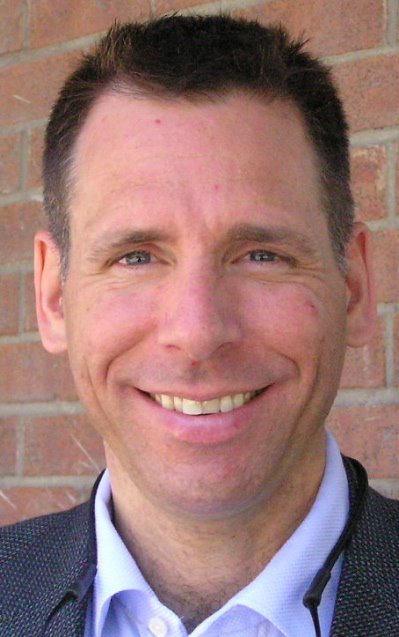GNEP in doubt: implications for Canada’s nuclear plans
Canada joined the Global Nuclear Energy Partnership (GNEP) in late 2007, under somewhat ambiguous terms. The GNEP is a U.S.-led international effort to promote nuclear power while ensuring strict control over the proliferation-sensitive parts of the nuclear fuel cycle.
GNEP envisions two types of members: fuel-cycle states, and fuel-recipient states. Fuel cycle states will provide enriched uranium fuel to recipient states, and will take back the spent fuel for possible reprocessing. Recipient states are thereby guaranteed a supply of fuel for their reactors and spared the fuss and expense of manufacturing fresh fuel and storing highly radioactive spent fuel.
Control over the fuel cycle will, in theory, minimize the number of states possessing proliferation-sensitive enrichment and reprocessing technologies.
Canada’s role in GNEP, as I discussed back in September, is interesting. We currently don’t use enriched fuel in our power reactors (all current CANDUs use natural unenriched fuel). But we soon will. Whichever reactors Ontario decides to buy, they will require either slightly- or low-enriched fuel.
Does this mean we would “lease” enriched fuel from one of the fuel-cycle countries under GNEP? Not necessarily. With last week’s announcement that the U.S. will no longer oppose Canada’s plan to enrich uranium, Canada is closer to getting the green light from the Nuclear Suppliers Group to develop its own enrichment facilities. If that were to occur, Canadian companies could sell enriched fuel to an Ontario nuclear utility. And we could also be on the verge of becoming, at least potentially, a fuel cycle state in the GNEP.
This is where it gets really interesting. If Canada were to supply enriched fuel to a recipient state, GNEP, in its original two-tier incarnation, would have obliged us to deal with that state’s spent fuel. However, when we joined GNEP our Natural Resources minister, Gary Lunn, said Canada will not—repeat not—receive other countries’ spent fuel. So presumably Canada-origin spent fuel would go to a full fuel cycle state for reprocessing, or to another state that is willing to host a spent-fuel repository.
Well, the ultimate fuel cycle state is the good old U.S. But GNEP’s crucial reprocessing component, which would see fast reactors destroying the fissile material in spent fuel, is quickly losing its appeal among the congressmen and senators who control the funding dollars on which the entire enterprise depends. As for the spent-fuel repository, even Yucca Mountain’s strongest congressional supporters are starting to talk about alternatives.
If the fast-burner GNEP dies, Canada would either have to abandon its no-repatriation position or just forget about supplying enriched fuel to any country other than itself and full fuel-cycle GNEP members. The second scenario is the more likely.
Once again, the U.S. is our biggest potential market. Oh well, there are worse things that could happen.
Canada joined the Global Nuclear Energy Partnership (GNEP) in late 2007, under somewhat ambiguous terms. The GNEP is a U.S.-led international effort to promote nuclear power while ensuring strict control over the proliferation-sensitive parts of the nuclear fuel cycle.
GNEP envisions two types of members: fuel-cycle states, and fuel-recipient states. Fuel cycle states will provide enriched uranium fuel to recipient states, and will take back the spent fuel for possible reprocessing. Recipient states are thereby guaranteed a supply of fuel for their reactors and spared the fuss and expense of manufacturing fresh fuel and storing highly radioactive spent fuel.
Control over the fuel cycle will, in theory, minimize the number of states possessing proliferation-sensitive enrichment and reprocessing technologies.
Canada’s role in GNEP, as I discussed back in September, is interesting. We currently don’t use enriched fuel in our power reactors (all current CANDUs use natural unenriched fuel). But we soon will. Whichever reactors Ontario decides to buy, they will require either slightly- or low-enriched fuel.
Does this mean we would “lease” enriched fuel from one of the fuel-cycle countries under GNEP? Not necessarily. With last week’s announcement that the U.S. will no longer oppose Canada’s plan to enrich uranium, Canada is closer to getting the green light from the Nuclear Suppliers Group to develop its own enrichment facilities. If that were to occur, Canadian companies could sell enriched fuel to an Ontario nuclear utility. And we could also be on the verge of becoming, at least potentially, a fuel cycle state in the GNEP.
This is where it gets really interesting. If Canada were to supply enriched fuel to a recipient state, GNEP, in its original two-tier incarnation, would have obliged us to deal with that state’s spent fuel. However, when we joined GNEP our Natural Resources minister, Gary Lunn, said Canada will not—repeat not—receive other countries’ spent fuel. So presumably Canada-origin spent fuel would go to a full fuel cycle state for reprocessing, or to another state that is willing to host a spent-fuel repository.
Well, the ultimate fuel cycle state is the good old U.S. But GNEP’s crucial reprocessing component, which would see fast reactors destroying the fissile material in spent fuel, is quickly losing its appeal among the congressmen and senators who control the funding dollars on which the entire enterprise depends. As for the spent-fuel repository, even Yucca Mountain’s strongest congressional supporters are starting to talk about alternatives.
If the fast-burner GNEP dies, Canada would either have to abandon its no-repatriation position or just forget about supplying enriched fuel to any country other than itself and full fuel-cycle GNEP members. The second scenario is the more likely.
Once again, the U.S. is our biggest potential market. Oh well, there are worse things that could happen.


0 Comments:
Post a Comment
<< Home